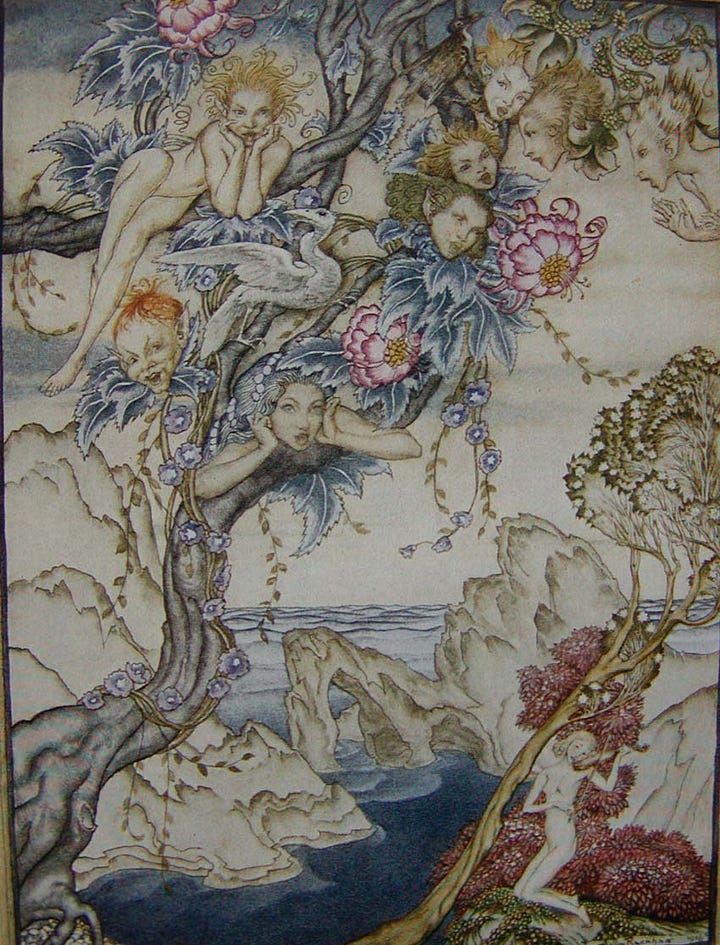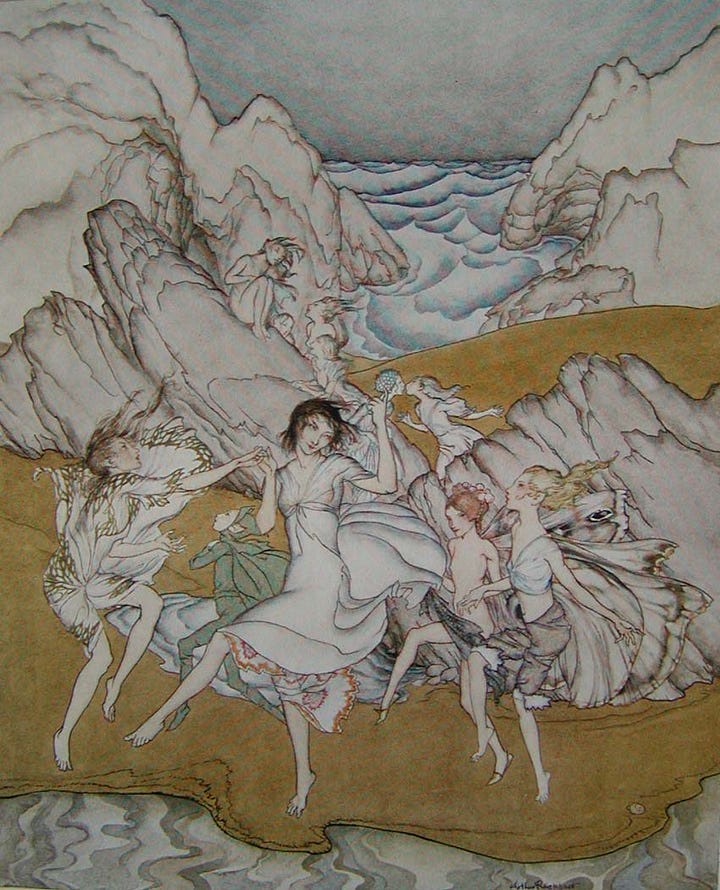The fairies have a, shall we say, interesting sense of justice, one that doesn’t always align with human thinking on the matter or even make sense to us. Folklore tells us very little about how the fairies handle slights or courtesies amongst themselves, but how they handle these things with humans offers us clues as to what the fairies’ code of ethics might be like.
Fairies Reward the True of Heart
There are numerous examples in folklore of fairies rewarding humans for being honest and true, for good deeds, for keeping a house tidy or for simply delighting the fairies in some way. Whether you are granted a wish for being kind to an old woman in the woods (who turns out to be a beautiful fairy maiden), or good luck for keeping safe a fairy goblet, or you find cobbled shoes when you wake in return for your hard work and humility, the fairies tend to reward the good, the true, the polite and the kind.
In one of the most famous tales, that of Tam Lin, a young woman discovers that the man she loves is a prisoner of the fairies but that there is a way to get him back. She must pull him off his horse while he is out riding with the fairies on a particular night. After doing so, she is told, the fairies will transform him into all manner of frightening thing to get her to let him go, but she must ignore all this and hold on. The fateful night arrives and the woman pulls the man from the horse and holds on for dear life. The man transforms into various apparitions, from fierce creatures to burning hot lead until finally he transforms back into a man and she wins his freedom. The fairy queen, who had been holding the man prisoner, is angered by this but accepts her defeat because the woman was loyal and brave and the fairies’ respect this sort of behaviour.


But Don’t Mess With the Fairies
The fairies don’t take kindly to slights, insults, greed, or trespassing. Trespassing in particular is something the fairies simply will not tolerate. They jealously guard their forts, raths, mounds and their ancient rites. It is said that humans who spy on the fairies as they dance or celebrate will be cursed by them, sometimes fatally. In some stories, human trespassers are struck and lose their senses or are made to babble or bleat like cows. Humans who have disturbed or removed stones from fairy knolls or who have broken or cut down fairy thorns have fallen ill soon after, or else have been beset with bad luck: failing crops, ailing farm animals, broken bones, or broken hearts. The fairies always get their revenge one way or another.
One story that sounds a bit silly at first and then takes a dark turn shows how the fairies can both reward or punish, seemingly on a whim. In The Legend of Knockgrafton, a man with a hump on his back was walking home one evening when he heard the sound of singing voices issuing from a barrow. The voices were singing the days of the week. The voices paused after “Tuesday” and the man sang back, “And Wednesday!” This so delighted the fairies, who had been singing inside the barrow, that they rewarded him by removing his hump and giving him splendid clothing. Upon hearing the story another man with a hump tried to duplicate the first man’s success. He walked past the barrow and hearing the voice sing, “Monday, Tuesday,” he sang out, “Wednesday, Thursday and Friday!” hoping to be even more rewarded than the first man had been. But this man hadn’t waited for the fairies to finish singing before he belted out his verse, and they thought he was rude and greedy, and so they made his hump twice as large. This man eventually died of grief.
This month’s video includes five true encounters with fairies who delivered some form of justice. Here it is if you haven’t seen it yet:
Pinch him, pinch him, black and blue,
Saucy mortals must not view
What the queen of stars is doing.
Nor pry into our fairy wooing.
Pinch him blue—
And pinch him black—
Let him not lack
Sharp nails to pinch him blue and red,
Till sleep has rocked his addlehead.
For the trespass he hath done
Spots o'er all his flesh shall run.
Kiss Endymion, kiss his eyes.
Then to our midnight heidegyes.
- John LylyOne of the major themes of my fairy fantasy novel The Ghosts of Nothing is revenge, and the unyielding nature of it when it comes to the fairies. Give it a read or a listen for a deeper dive into the fairy world and its wonders and terrors.
Until next time,
Your Scary Fairy Godmother





I have many friends among the fae who often visit me and give encouragement. I was fae in a past life before coming here and long to return there once this whole human experience is over with.